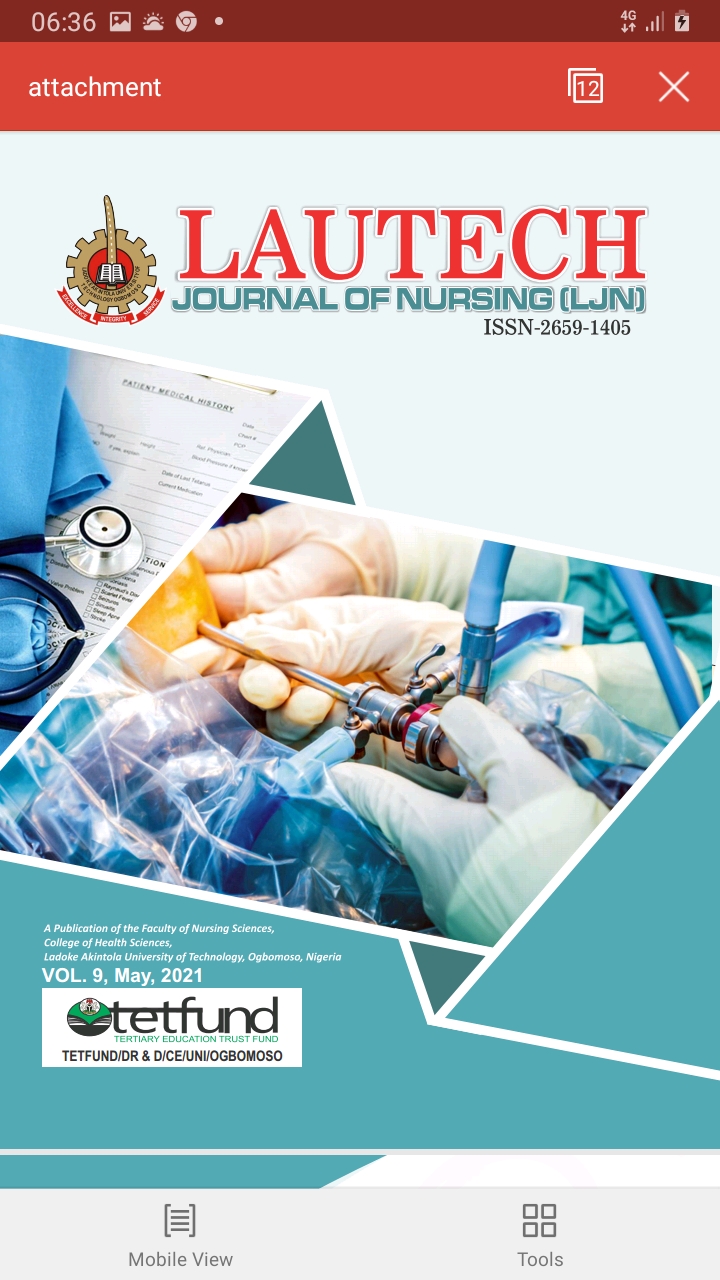This empirical study determined level of stress and physio-psycho-social response among student nurses in Northern Nigeria. The research utilized descriptive cross-sectional and correlational designs. Multi-Stage sampling technique was
used to select 237 student nurses from three geo-political zones covering 19 states in Nigeria. The instrument for data
collection were the self-report questionnaire, the Perceived Stress Scale (PSS) and Physio-psychosocial response Scale
(PPSRS). The tool was made up of 50 items. The instrument for internal consistency reliability was computed via
Cronbach alpha and produced .896 and .933 respectively. The gathered data was analysed using both descriptive and
inferential statistics. This research observed that the level of stress among respondents is moderate. Further findings
revealed that the common sources of stress are Stressors from assignments and workload ranking 1st, Stressors from
teachers and nursing staff ranking 2nd and Stressors from peers and daily life ranking 3rd. The result of this study also
showed that the total ranking on the Physio-Psycho-social response of the students’ Physio-Psycho-social health and
well-being in general manifested Good Health Status. Four hypotheses were tested and the first revealed that there was
no statistically significant difference in stress levels of nurses based on their ages. Secondly, there was a significant
difference in the stress levels based on the respondent’s states they came from, thirdly, there was no significant difference
in the student nurses stress levels and lastly, there is a statistically significant and positive relationship between the total
stress and overall physio-psycho-social health among the student nurses. Based on these findings, recommendations
were made among which nurse educators and stakeholders should be aware of the existence of stress, the sources of
the stress, the stressors and should strengthen student coping skills and strategies to deal with them. There should also
be a periodic revisiting and review of the training curriculum, emphasizing on the related learning experiences so as to
be in tandem with the 21st century nursing profession.
- MURTALA | Aliyu | Sakwa | tafidansakwa1@gmail.com | +2348036025974, MUHAMMAD | Abdullahi | Sabo | likitasabo@gmail.com | +2348035665734
- Physio-Psycho-Social Health Response: Student Nurses
- MURTALA Aliyu Vol 9 (1)


